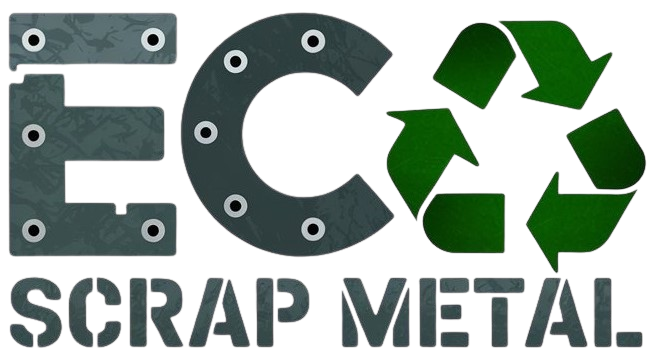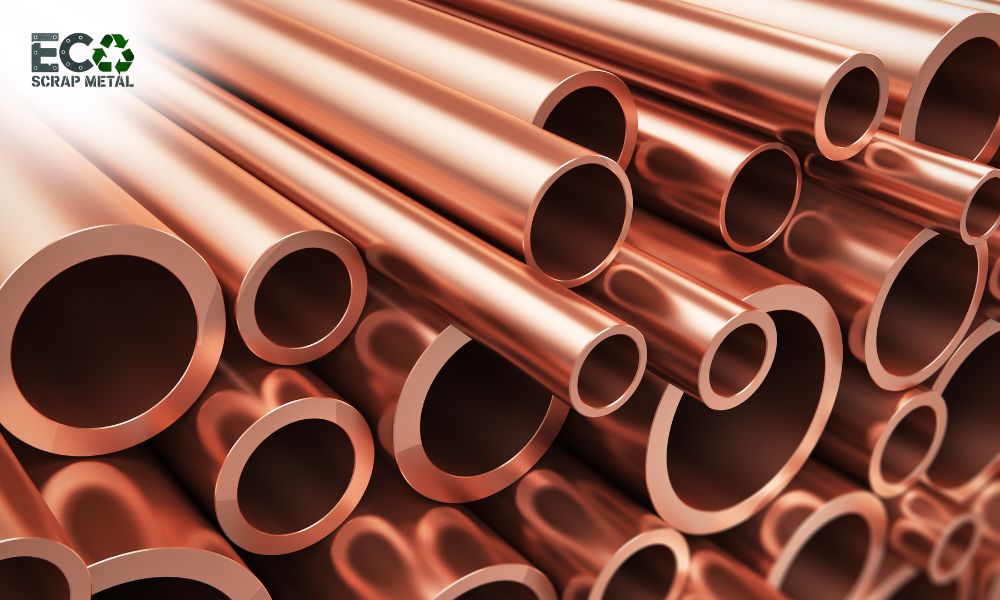How to Find Copper Scrap to Sell and Earn Money
Copper has been a valuable commodity for centuries, and its demand continues to grow, making it one of the most sought-after metals in the recycling world. Whether you’re looking to make some extra cash on the side or you’re considering starting a business in scrap metal collection, copper scrap is a lucrative option. In this guide, we will walk you through various ways to find copper scrap, how to maximise your earnings, and essential tips to succeed in the scrap copper business.
Why Copper is a Valuable Scrap Metal
Before diving into the methods of finding copper scrap, it’s important to understand why copper is so valuable. Copper is a non-ferrous metal, meaning it doesn’t contain iron, and it is highly resistant to corrosion, making it useful in electrical wiring, plumbing, and many other industries. Copper’s inherent properties also make it ideal for recycling since it can be reused without losing its quality. This recycling potential has made copper an essential material in both the manufacturing and scrap metal industries.
Some of the primary factors that contribute to copper’s value are:
- High Demand in Industry: Copper is crucial in electrical wiring, plumbing, construction, and the automotive industry. This high demand directly influences the price of copper on the scrap market.
- Recycling Efficiency: Copper is 100% recyclable, and because of this, scrap copper is always in demand from metal recyclers and manufacturers.
- Rarity of High-Grade Copper: While copper is abundant in the earth’s crust, high-quality copper scrap, especially free of contaminants, is more difficult to find.
Types of Copper Scrap
Before you begin searching for copper scrap, it’s important to know the different types of copper you can find. The price you can sell copper for depends largely on its grade and condition. The most common types of copper scrap include:
- Bare Bright Copper: This is the highest grade of copper scrap, usually consisting of wire that is free from any insulation or coatings. It is shiny and clean with no corrosion or contaminants.
- Clean Copper Scrap: This includes copper wire, pipes, or any other copper items that have been stripped of coatings, insulation, or contaminants.
- Copper Tubing or Piping: Scrap copper pipes, tubes, and fittings are common sources of copper scrap. These can come from old plumbing systems or air conditioning units.
- Copper Wire: Electrical wire and cables, particularly those used in household wiring, are excellent sources of copper. These may require stripping the insulation before they can be sold for a higher price.
- Bronze and Brass Scrap: These are copper alloys and can also fetch a good price, though they are usually worth slightly less than pure copper.
How to Find Copper Scrap to Sell
Now that you understand the value of copper and the types of scrap copper, let’s explore some practical ways to find copper scrap and get started on your journey to earn money.
1. Construction & Renovation Sites
Construction sites, especially older ones, are goldmines for scrap copper. During renovations or demolitions, copper wiring, pipes, and tubing are often discarded as waste. Some sites may even have large amounts of scrap copper that would be thrown out if no one claims it.
How to capitalise:
- Network with contractors: Build relationships with construction companies, renovation contractors, and home improvement professionals. Let them know you are interested in taking any copper scrap off their hands.
- Ask for permission: Before salvaging scrap copper from construction sites, always get permission from the site manager or contractor to avoid legal issues.
- Offer a service: Offer to remove scrap copper and other metals for free as part of the cleanup process. You can often find valuable copper scrap this way.
2. Electronics Disposal Centers
Electronic waste (e-waste) is another great source of copper. Many electronic devices such as computers, televisions, radios, and even old mobile phones contain copper wiring, connectors, and coils. While copper is generally found in small quantities within these devices, the accumulation of several discarded electronics can result in a significant amount of copper.
How to capitalise:
- Contact e-waste recycling centers: Reach out to businesses that specialize in e-waste recycling. Some may allow you to collect the copper scrap for a fee or even pay you for valuable parts.
- Search for old electronics: Visit thrift stores, garage sales, or online marketplaces (such as Craigslist or Facebook Marketplace) to find old, unwanted electronics that you can strip for copper.
3. Copper Scrap in Household Items
Many everyday household items contain copper, especially those that are outdated or broken. Some of the common items you can find copper scrap in include:
- Old Appliances: Refrigerators, washing machines, microwaves, and air conditioners often have copper coils or piping that can be salvaged.
- Electrical Wiring: Old extension cords, electrical wiring, and power strips are great sources of copper.
- Plumbing Fixtures: Old pipes, faucets, and showerheads can contain copper that can be repurposed.
How to capitalise:
- Ask friends and family: Let people in your social circle know that you are collecting copper scrap. Many people may have old items they are looking to dispose of and will be happy to give them to you.
- Find broken or outdated appliances: Keep an eye out for discarded or broken appliances that could have valuable copper inside. Many appliances can be found in curbside trash bins or as “free stuff” on community boards.
4. Scrap Copper in Industrial Areas
Industrial and manufacturing zones are also hotspots for copper scrap. Factories and warehouses often discard copper parts, wiring, and tubes as part of their manufacturing processes. These sites may throw out scrap copper when upgrading or decommissioning machinery.
How to capitalise:
- Approach local businesses: Network with businesses in industrial zones and ask if they have any scrap copper available.
- Check dumpsters and scrap piles: Some industrial facilities may leave scrap copper outside in designated bins or dumpsters, especially if they’re doing a cleanup or upgrade.
5. Use Online Marketplaces
If you’re not sure where to start looking for copper scrap locally, online marketplaces can be a great resource. Websites such as Craigslist, Facebook Marketplace, OfferUp, and even eBay often feature listings of scrap copper or old appliances being sold or given away for free.
How to capitalise:
- Monitor local listings: Keep an eye on online classifieds for free or cheap copper scrap listings. Often, people are eager to get rid of old electronics or household items with copper.
- Negotiate deals: Contact sellers and negotiate prices. You may find that many people are simply looking to get rid of old, unused items, so you can often acquire them at a low cost or even for free.
6. Scrap Metal Yards & Recycling Centers
While many people focus on collecting scrap metal themselves, scrap metal yards and recycling centers are great places to find copper scrap as well. Some scrapyards allow individuals to bring in copper scrap from their homes or businesses, and many offer competitive prices for copper scrap.
How to capitalise:
- Visit scrap metal yards regularly: Make it a habit to visit local recycling centers to find copper scrap that people have dropped off. These centers may even allow you to sort through bins to find copper.
- Build relationships with scrap yard owners: Get to know the people at your local recycling centers, and they may let you know when they receive large amounts of copper or allow you to purchase it for a low price.
7. Take Advantage of Copper in Old Cars
Old vehicles are a treasure trove for copper scrap. Many car parts, including radiators, wiring, and connectors, contain copper. You can either find old, wrecked cars in junkyards or even purchase vehicles for cheap, strip them for valuable copper, and then scrap the remaining parts.
How to capitalise:
- Look for junk cars: Visit junkyards, used car lots, or online classified ads to find vehicles that may contain valuable copper.
- Know how to dismantle cars: Learning how to strip copper from car parts, such as wiring and radiators, will make you more efficient in extracting valuable copper scrap.
Tips to Maximise Your Earnings from Copper Scrap
- Separate and Clean Your Copper: Clean, stripped copper (such as bare bright wire) is worth more than copper that is still coated or contains contaminants. Take the time to remove any insulation or other non-metallic materials before selling it.
- Weigh Your Copper: Always weigh your copper before you take it to the scrap yard to ensure you get an accurate payout. Scrap yards may try to undervalue your scrap if you don’t know how much it weighs.
- Stay Informed on Copper Prices: Copper prices fluctuate based on supply and demand. Stay updated on current market rates to ensure you’re getting a fair price.
- Follow Local Regulations: Make sure you’re complying with local laws when collecting and selling scrap metal. Some areas have strict rules regarding scrap collection, so always check before you start.
Conclusion
Finding copper scrap to sell and earn money is not only a profitable endeavor but also an environmentally friendly way to contribute to the recycling industry. Whether you’re scavenging construction sites, electronics disposal centers, or household items, there are countless opportunities to find copper scrap and turn it into cash. By knowing where to look, understanding the different types of copper, and maximising your efforts, you can build a successful business or side hustle in scrap copper.

